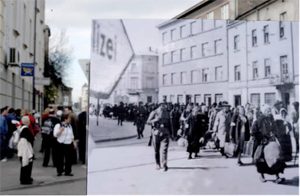
One of the remarkable things about laughter is that it occurs unconsciously. You don’t decide to do it. While we can consciously inhibit it, we don’t consciously produce laughter. That’s why it’s very hard to laugh on command or to fake laughter.
Local history is a bit like this in that students acquire local historical knowledge unconsciously, but we find that use of this knowledge is inhibited by its unconscious acquisition; it is not ‘learned’, thus, it seems, students regard it to be of much lesser value than knowledge acquired more formally. On the other hand, I have found many students to be insular, most would find it difficult to place people and events in their correct historical context, as they did not have sufficient knowledge of the world beyond their local area. With a keen interest myself in local history, I found this enabled me to build strong relationships with students, as I was taking an interest in them and the places they were familiar with.
This article aims, therefore, to overcome students' usual inhibitions, and help them to use their local knowledge to drive forward their historical understanding, to expand their knowledge and horizons.

















